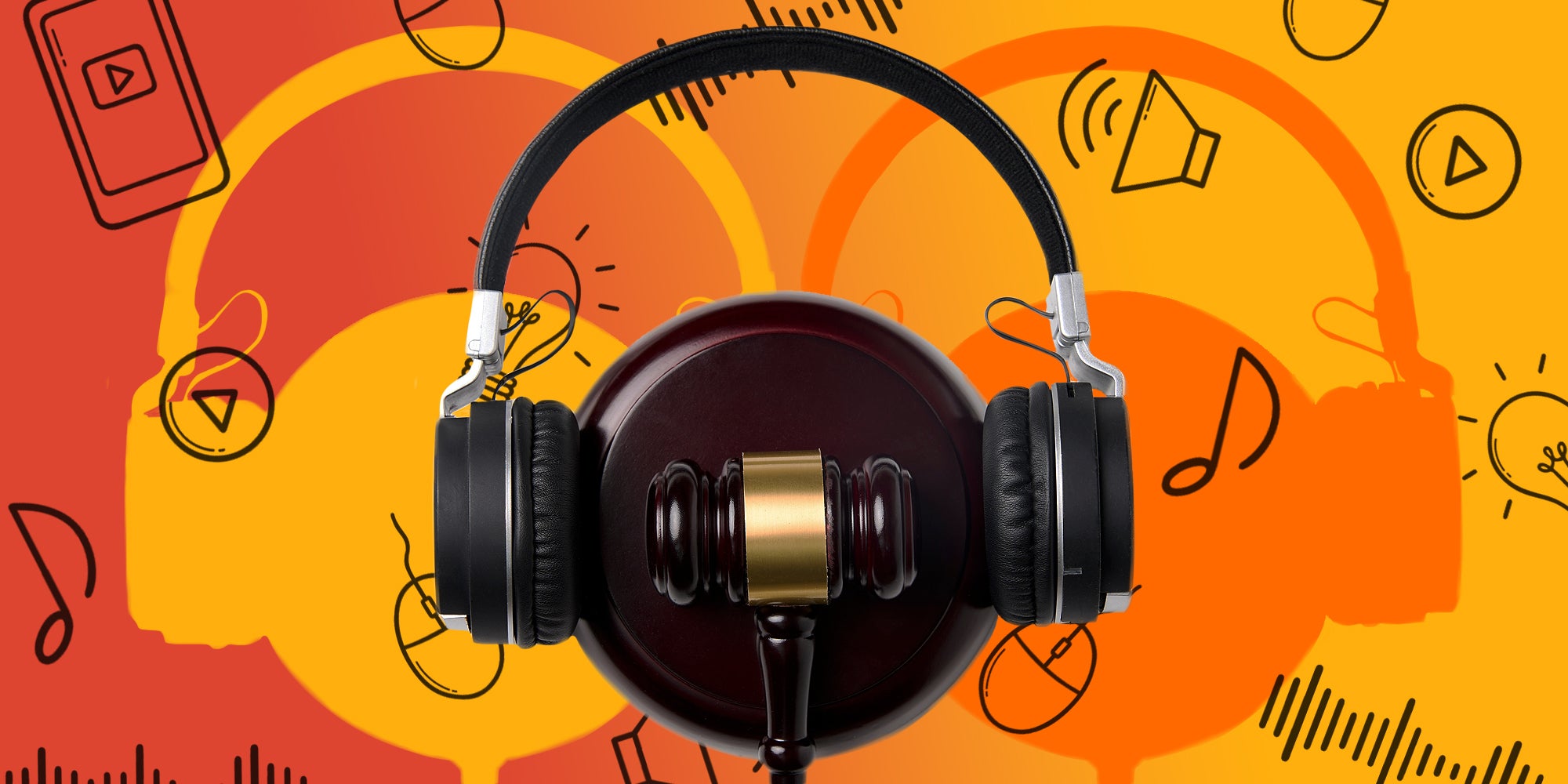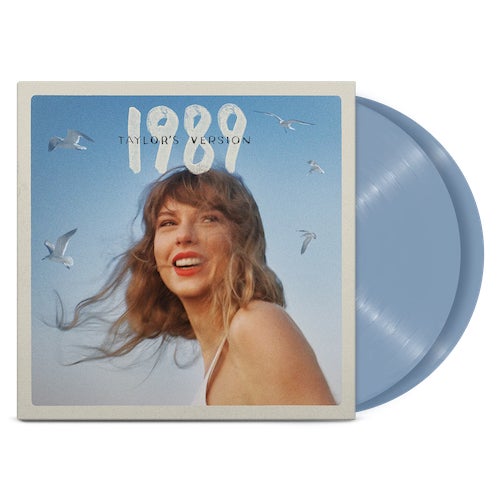
As creators continue to use music to set the scene for their content, it is essential that they understand the legal boundaries around their use. After all, behind every trending track are artists, music labels, and producers with legal skin in the game. Before you use someone’s music professionally, you need to know how to license music.
More and more music publishers are flocking to social platforms to make their libraries discoverable to users—but not without some legal strings attached. Does the availability of a popular hit on social media allow creators to use it however they want?
How do content creators use copyrighted music?
Platforms offer creators the ability to use popular music (aka trending sounds) through licensing agreements with music and entertainment conglomerates like Warner, Sony, and Universal. A licensing agreement is a contract that outlines the manner a non-copyright holder may use a copyrighted work.
Generally, these licensing agreements permit social media platforms the ability to make different music catalogs available to creators to incorporate in their content. Recently, Warner Music Group signed a deal with TikTok to expand its catalogs of Warner Recorded Music and Warner Chappell Music to TikTok, TikTok Music (available only in Indonesia and Brazil), CapCut, and TikTok’s commercial music library.
However, these licensing agreements grant different levels of permission to social media platforms and content creators. Some portions of a music catalog are available for non-commercial, personal use, and others may be considered royalty-free and available for commercial use.

Essentially, this is the difference between using a sound for organic content versus sponsored content without having to pay to use the music.
FYI: these licensing agreements do not allow creators to use popular music for sponsored content. As soon as creators cross that line, they may be subject to paying a fee (“royalties”) and hefty penalties for infringement. That’s why several music conglomerates sued Bang Energy. Instead, creators should use royalty-free sounds, which allow creators to use the sound for any purpose without paying for a license.
Alternatively, creators obtain licenses through other audio libraries, like Epidemic Sound. Like social media platforms, audio libraries permit creators access to a different catalog of music or sounds. Creators normally pay a subscription fee to access and use the audio in their content.
Depending on their licensing plan, this may allow creators the ability to integrate sounds from their library for organic and branded content purposes. Creators should check their plan’s terms to be sure.
What license do you need to stream copyrighted music?
Generally, a synchronization license (commonly known as a “sync license”) will permit creators to include copyrighted music while streaming. A synchronization license allows creators to have the copyrighted music in the background of their streams.
The cost of a synchronization license will largely depend on the music publisher or audio library licensing terms. To stream copyrighted music, creators could negotiate a license with the applicable record label or artist or consider a subscription to an audio library.
A synchronization license usually considers the fact that creators will make their use publicly available. In addition to having permission to synchronize sounds with a stream or video, creators also obtain a distribution license, which outlines where creators can publish the content containing the copyrighted music.
What is the difference between copyright and music license?
A copyright refers to a set of legal rights you obtain in creative works. Copyright law protects all creative works that are fixed in a tangible medium. In the creator space, that law encompasses practically everything that you create. That includes a static image, short-form video, podcast episode, blog post, or music.
Copyright ownership grants owners the right to control where their work is published, create derivative works, repost or repurpose the work, report and seek removal of infringing content, license or transfer ownership of their work to third parties, and of course, get paid selling or licensing their work.
In the music industry, several parties have a stake in copyright ownership, from the composition to the master recording. To simplify this for you, most disputes in the creator realm involve the usage of the master recording. The master recording is what we listen to.

In 2019, Scooter Braun purchased Taylor Swift’s master recordings. Anyone wanting to use a Taylor Swift song would pay Braun a licensing fee. However, as the owner of the music composition, the song itself, Taylor Swift responded by re-recording her catalog. Her re-recordings are released under the name “(Taylor’s Version),” offering her signature hits and new b-sides.
Anyone who uses “(Taylor’s Version)” will pay Swift the licensing fee instead of Braun. Swift owns the masters for the new recordings of her compositions. Braun owns the original master recordings of those compositions. Payment for the original recordings will still go to Braun.
A license is a limited permission to use copyrighted works. These usually kick in when someone else is requesting permission to use someone else’s copyrighted work. Only copyright owners can grant a license.
A license outlines the scope and manner another party can use a copyrighted work. Typically, a copyright owner charges a fee (or a royalty) for using the copyrighted work. This will largely depend on the scale of the usage.
Do you need a license to use copyrighted music?
In a nutshell, yes, they do, especially if they plan on using it in sponsored content. Most licenses available via social platforms do not permit creators to use popular music for sponsored content.
If creators plan on using sounds available through a separate library, they should consult the relevant terms of use. Remember that this does not apply to organic non-commercial, personal use.




